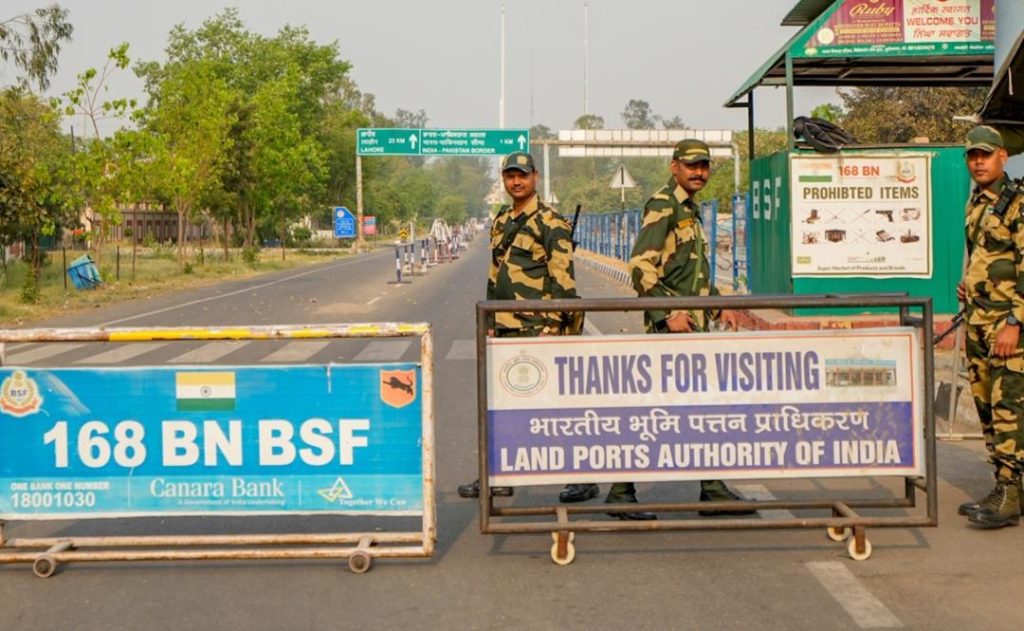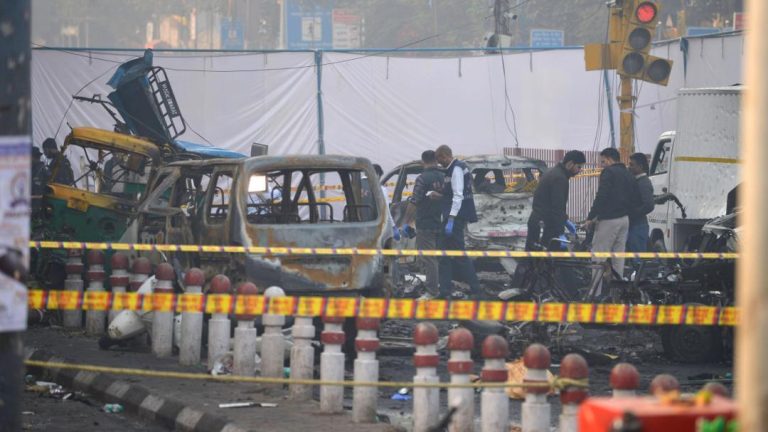
Attari-Wagah Border between India & Pakistan Completely Closed
The Attari-Wagah border, a vital crossing point between India and Pakistan, has been completely closed, according to a report by PTI on Thursday. For the first time in recent memory, no person from either side crossed the border to the other on Thursday, marking a significant development in the already strained relations between the two nations.
The closure of the border was sparked by a decision made by Pakistan to shut down the crossing point and stop accepting its citizens who were being deported by India. The mass deportations followed a devastating terror attack in Pahalgam, which left 26 tourists dead.
The Pahalgam terror attack, which occurred on Tuesday, was a stark reminder of the ongoing threat posed by terrorism in the region. The attack has sent shockwaves across the country, with the government and security agencies scrambling to respond to the crisis.
In the aftermath of the attack, the Indian government launched a massive operation to track down and apprehend those responsible. The operation has resulted in the deportation of several Pakistani nationals, who were allegedly involved in the attack.
However, Pakistan has refused to accept these deported nationals, citing concerns over their treatment and security in India. The refusal has led to a standoff between the two countries, with the Attari-Wagah border remaining shut since Thursday.
The closure of the border has significant implications for trade and people-to-people contact between the two nations. The Attari-Wagah border is one of the most heavily used crossing points between India and Pakistan, with thousands of people crossing the border every day.
The border is also an important economic link between the two countries, with a significant volume of trade passing through it. The closure of the border is likely to disrupt this trade, causing difficulties for businesses and entrepreneurs on both sides.
The decision to close the border has also sparked concerns about the humanitarian implications. There are thousands of people on both sides who rely on the border for their livelihood, and the closure is likely to cause significant hardship for these individuals.
The Pahalgam terror attack has also raised questions about the effectiveness of security measures in place along the border. The attack highlights the need for improved security coordination and intelligence sharing between the two countries to prevent similar incidents in the future.
In a statement, the Pakistani Foreign Office said that the country was “deeply concerned” about the well-being of its nationals being deported by India. The statement also urged India to provide “credible evidence” of the involvement of Pakistani nationals in the Pahalgam attack.
The Indian government has rejected Pakistan’s demands, saying that it has “irrefutable evidence” of the involvement of Pakistani nationals in the attack. The government has also warned of “strong action” against those responsible for the attack.
The closure of the Attari-Wagah border is a significant development in the already tense relations between India and Pakistan. The two countries have a long history of conflict and tension, and the closure of the border is likely to further escalate the situation.
As the situation continues to unfold, it is clear that the people of both countries are the ones who will suffer the most. The closure of the border will disrupt trade and people-to-people contact, causing hardship and uncertainty for thousands of individuals.
It is imperative that the governments of India and Pakistan take immediate steps to resolve the situation and restore normalcy to the border. This can only be achieved through dialogue and cooperation, and a willingness to put the interests of their people above their differences.



